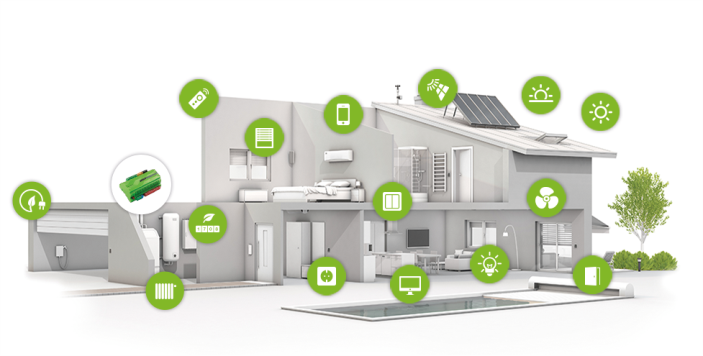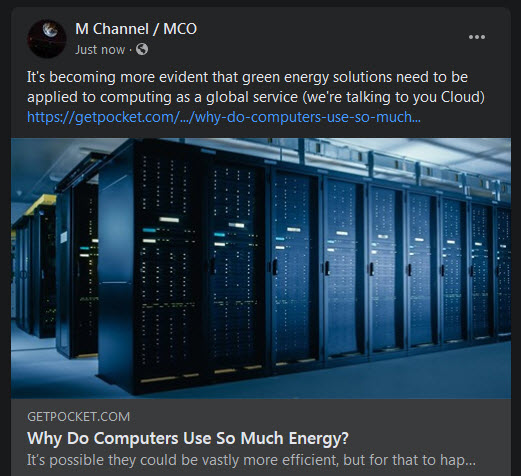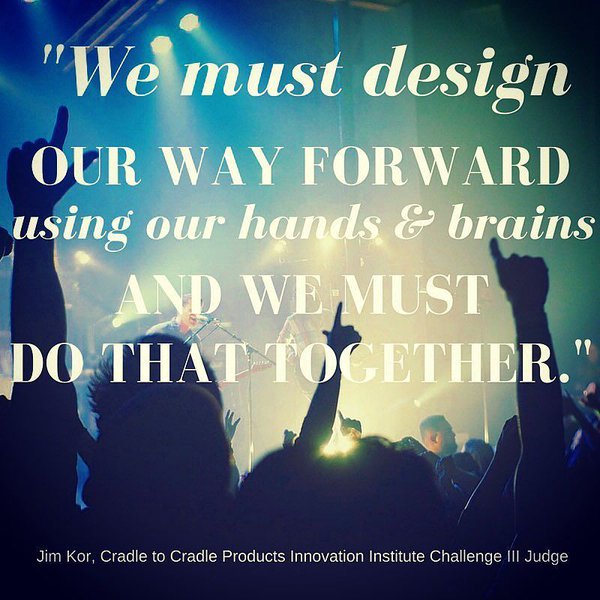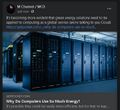Category:Energy Saving: Difference between revisions
Siterunner (talk | contribs) No edit summary |
Siterunner (talk | contribs) No edit summary |
||
| (2 intermediate revisions by the same user not shown) | |||
| Line 42: | Line 42: | ||
○ ○ ○ ○ ○ ○ ○ ○ ○ ○ ○ ○ ○ ○ ○ ○ ○ ○ ○ ○ ○ ○ ○ ○ ○ ○ ○ ○ | |||
Bitcoin Mining Is an Energy Eating Mega-System | |||
[[File:Computing and energy saving green solutions.jpg]] | [[File:Computing and energy saving green solutions.jpg]] | ||
* https://www.forbes.com/advisor/investing/bitcoins-energy-usage-explained/ | |||
* https://www.dailycal.org/2022/03/23/why-bitcoin-mining-requires-a-lot-of-energy/ | |||
* https://news.yahoo.com/why-does-bitcoin-mining-much-152227882.html | |||
* https://academy.aax.com/en/bitcoin-minings-energy-consumption-and-its-environmental-impact/ | |||
○ ○ ○ ○ ○ ○ ○ ○ ○ ○ ○ ○ ○ ○ ○ ○ ○ ○ ○ ○ ○ ○ ○ ○ ○ ○ ○ ○ | |||
| Line 114: | Line 127: | ||
* https://getpocket.com/explore/item/why-do-computers-use-so-much-energy | * https://getpocket.com/explore/item/why-do-computers-use-so-much-energy | ||
| Line 120: | Line 132: | ||
[[Category:Building Standards]] | |||
[[Category:Climate Change]] | |||
[[Category:Climate Policy]] | |||
[[Category:Energy]] | |||
[[Category:Planet Citizen]] | [[Category:Planet Citizen]] | ||
[[Category:Planet Citizens]] | [[Category:Planet Citizens]] | ||
[[Category:Planet Citizens, Planet Scientists]] | [[Category:Planet Citizens, Planet Scientists]] | ||
[[Category:Pollution]] | [[Category:Pollution]] | ||
[[Category:Recycling]] | [[Category:Recycling]] | ||
[[Category:Renewable Energy]] | [[Category:Renewable Energy]] | ||
Latest revision as of 19:33, 26 March 2022
Energy Saving = Energy Efficiency = Cost Saving = Smart Climate Policy
"Energy Efficiency", yesterday, today and tomorrow
Via The Guardian
March 2022
Amory Lovins: ‘It’s the largest, cheapest, safest, cleanest way to address the crisis’
Nicknamed the “Einstein of energy efficiency”, Lovins, an adjunct professor of civil and environmental engineering at Stanford University, has been one of the world’s leading advocates and innovators of energy conservation for 50 years...
One of the leading advocates of energy conservation explains why this could be a turning point for climate economics...
Efficiency was seen as... rather dull compared with a massive transition to renewables and other new technologies. Now, he hopes, its time may have come. Lovins is arguing for the mass insulation of buildings alongside a vast acceleration of renewables. “We should crank [them] up with wartime urgency. There should be far more emphasis on efficiency,” he says...
He sees Vladimir Putin’s war in Ukraine as an outrage, but possibly also a step towards solving the climate crisis and a way to save trillions of dollars. “He has managed to bring about all the outcomes that he most feared, but he may inadvertently have put the energy transition and climate solutions into a higher gear. Whether or not we end up in a recession because of the disruption, [Putin’s war] may prove to be a great thing for climate economics.”
“Solar and wind are now the cheapest bulk power sources in 91% of the world, and the UN’s International Energy Agency (IEA) expects renewables to generate 90% of all new power in the coming years.
... the problem today is [how to better use energy, how to be more efficient, how to design and build smarter]. The answer is what he calls “integrative, or whole-system, design,” a way to employ orthodox engineering to achieve radically more energy-efficient results by changing the design logic.
“So if you do this across the whole economy, really designing whole systems in factories, equipment, buildings, vehicles, you’ll end up with severalfold larger energy savings than practically anyone now thinks is available. And the cost goes down.”
○ ○ ○ ○ ○ ○ ○ ○ ○ ○ ○ ○ ○ ○
Smart Home Energy
○ ○ ○ ○ ○ ○ ○ ○ ○ ○ ○ ○ ○ ○ ○ ○ ○ ○ ○ ○ ○ ○ ○ ○ ○ ○ ○ ○
Bitcoin Mining Is an Energy Eating Mega-System
○ ○ ○ ○ ○ ○ ○ ○ ○ ○ ○ ○ ○ ○ ○ ○ ○ ○ ○ ○ ○ ○ ○ ○ ○ ○ ○ ○
GreenPolicy360: In the 1990's, a Bioneers group of visionary environmentalists was organizing the first decade of global conferences having moved the original venue in the 'city of St. Francis, Santa Fe' in New Mexico to the 'city of St. Francis, San Francisco' in California. Your GreenPolicy360 siterunner was starting up publishing works for the Bioneers and staying in San Francisco, on occasion, on Green Street. The Deputy Superintendent for the Presidio national park and I would talk about how the former Army base was being converted, design principles for a people's park and how she remembered lessons of Bill McDonough, 'Professor McDonough' from her days studying architecture at the University of Virginia and Yale. William McDonough was in the process of envisioning and bringing together impressive new ways of seeing the interconnections between design and the environment, ways to build with 'smart' design principles. His Hannover design principles were, I remember, one of the first serious looks at 'relational reality' as we were referring to it in the original green transformational ecological work we were up to... Step by step, year by year, many of these original ideas became threads, both in the world of McDonough and his followers, students and clients, and among us and our friends, associates, activists and 'global green team'.
A tip of our GreenPolicy360 hat, an h/t to Bill/William/Professor McDonough, a true Planet Citizen who has created a legacy with his work, a body of thought and ideas, Green Best Practices that will continue on...
Consider the Hannover Principles (1992)
McDonough's "Design, Ecology, Ethics and the Making of Things", a "Centennial Sermon" delivered in the Cathedral of St. John the Divine , NYC, February 7, 1993
○ ○ ○ ○ ○ ○ ○ ○ ○ ○ ○ ○ ○ ○ ○ ○ ○ ○ ○ ○ ○ ○ ○ ○ ○ ○ ○
Why Do Computers Use So Much Energy?
Designing computers, servers, networks and electronics to be energy smart...
It’s possible they could be vastly more efficient, but for that to happen we need to better understand the thermodynamics of computing
By David Wolpert
Via Scientific American
~
Subcategories
This category has the following 2 subcategories, out of 2 total.
B
E
Media in category "Energy Saving"
The following 5 files are in this category, out of 5 total.
- Computing and energy saving green solutions.jpg 521 × 476; 86 KB
- Vertical Forest - 2.png 494 × 621; 573 KB
- Vertical Forest Milan.jpg 731 × 543; 147 KB
- Worlds energy sources chart - circa 2019 - 800x1680.jpg 800 × 1,680; 361 KB
- Worlds energy sources chart - circa 2019.jpg 1,200 × 2,508; 633 KB







